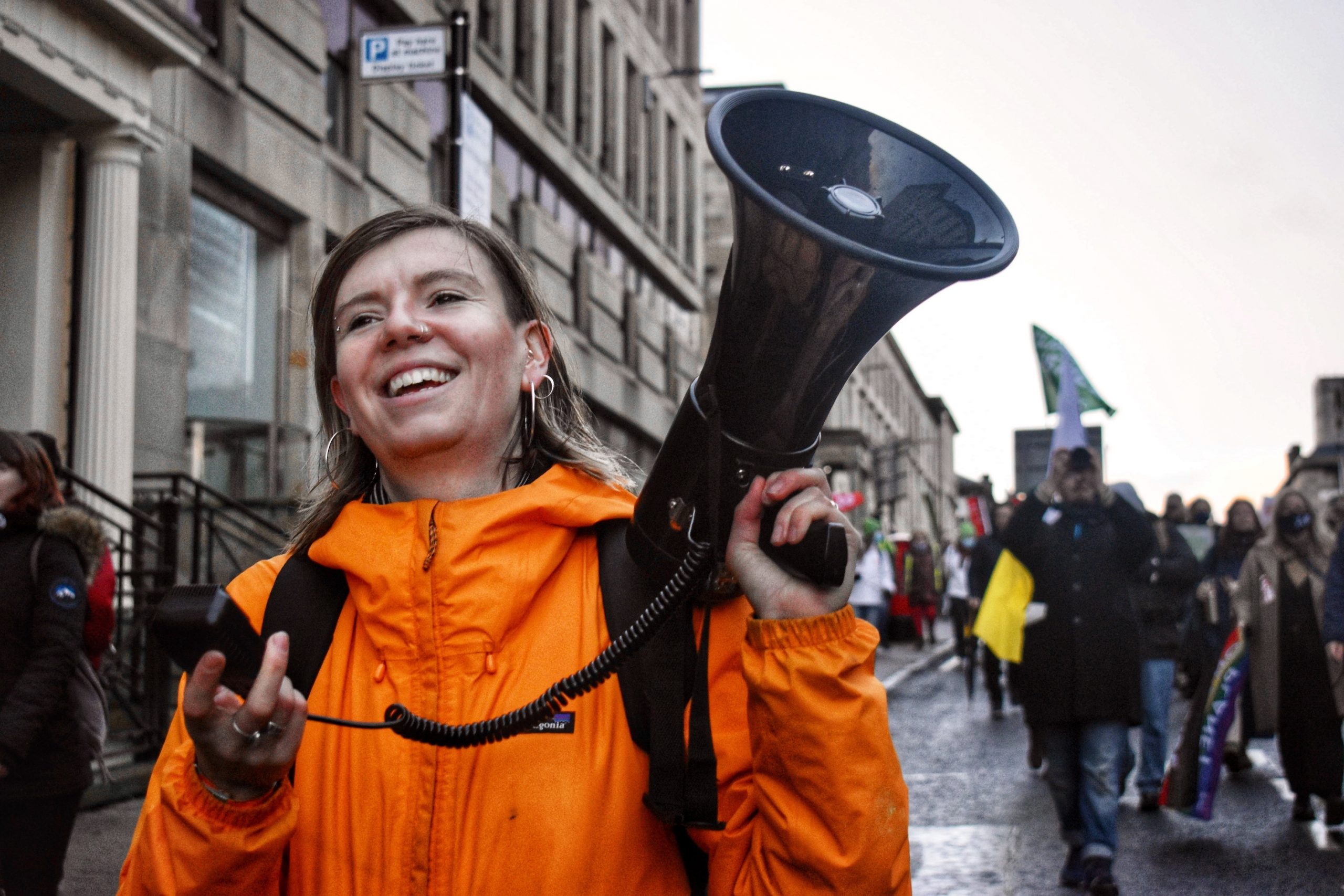
Campaigners welcome new public bank to finance action on climate crisis
The Scottish National Investment Bank Bill passed today (21/01/20) formally establishing in law a new public bank for Scotland.
MSPs voted for a Government amendment which puts a legal obligation on the Bank to hold a list of minimum ethical standards for its investments, a key demand of environmental campaigners.
MSPs also rubber stamped existing changes that ensured the Bank must finance a Just Transition away from fossil fuels to help create a zero-carbon economy.
Following today’s vote, Friends of the Earth Scotland is urging the Government to rule out any investment in fossil fuels and to publish in full the Bank’s ethical policy and list of investments.
Friends of the Earth Scotland’s Divestment Campaigner, Ric Lander, said:
“Because of the hard work by climate activists the Scottish National Investment Bank must now invest in climate solutions and maintain ethical standards across its activities. This is a huge achievement. We can now say that the creation of this Bank is good news in the fight against the climate crisis. ”
“With its legal obligations to tackle the climate crisis, the Scottish Government should now clarify that this new public bank will not invest in any fossil fuels, plastic production, deforestation or other projects that will push up our climate emissions.”
“Our new public bank should be shaping our economy for the future, turning away from a business-as-usual approach prioritising people and planet in the shift to a zero-carbon economy.”
“With its objective to target finance towards a Just Transition this Bank should be tackling fuel poverty, creating new renewables supply chain jobs, decarbonising our heating and financing zero carbon transport.”
“Now that the Bill to create the Scottish National Investment Bank has passed Parliament, it urgently needs to get going in providing finance that can help us realise a Just Transition to a fossil free economy.”
ENDS
Notes to Editors
Stage 3 of the Scottish National Investment Bank Bill was debated today in the Scottish Parliament
https://www.parliament.scot/parliamentarybusiness/Bills/111153.aspx
Other amendments that didn’t pass, but were backed by campaigners, include:
Amendments from Rhoda Grant which would have required the Bank to publish its ethical standards document and list of investments.
Amendments from Neil Findlay that would have ensured the Bank would prioritise investment in companies with the highest employment standards, to provide for the creation of decent work and protect livelihoods through the transition.
Examples of public investors that publish their investments in full:
* European Investment Bank:
https://www.eib.org/en/efsi/efsi-projects/index.htm?q=&sortColumn=boardDate&sortDir=desc&pageNumber=0&itemPerPage=25&pageable=true&language=EN&defaultLanguage=EN&abstractProject=true&orabstractProject=true&yearFrom=2015&yearTo=2020&orCountries=true&orSectors=true
* Norwegian Sovereign Wealth Fund:
https://www.nbim.no/en/the-fund/holdings/holdings-as-at-31.12.2018/?fullsize=true
* Strathclyde Pension Fund:
https://www.spfo.org.uk/index.aspx?articleid=16962
* Highlands and Islands Enterprise:
https://www.hie.co.uk/about-us/policies-and-publications/our-funding-approvals/
23 MSPs from four parties, including former Government Ministers, have now pledged support for fossil free investment as part of the Friends of the Earth Scotland ‘Divest Scotland Campaign’
Friends of the Earth Scotland is:
* Scotland’s leading environmental campaigning organisation
* An independent Scottish charity with a network of thousands of supporters and active local groups across Scotland
* Part of the largest grassroots environmental network in the world, uniting over 2 million supporters, 75 national member groups, and some 5,000 local activist groups.
